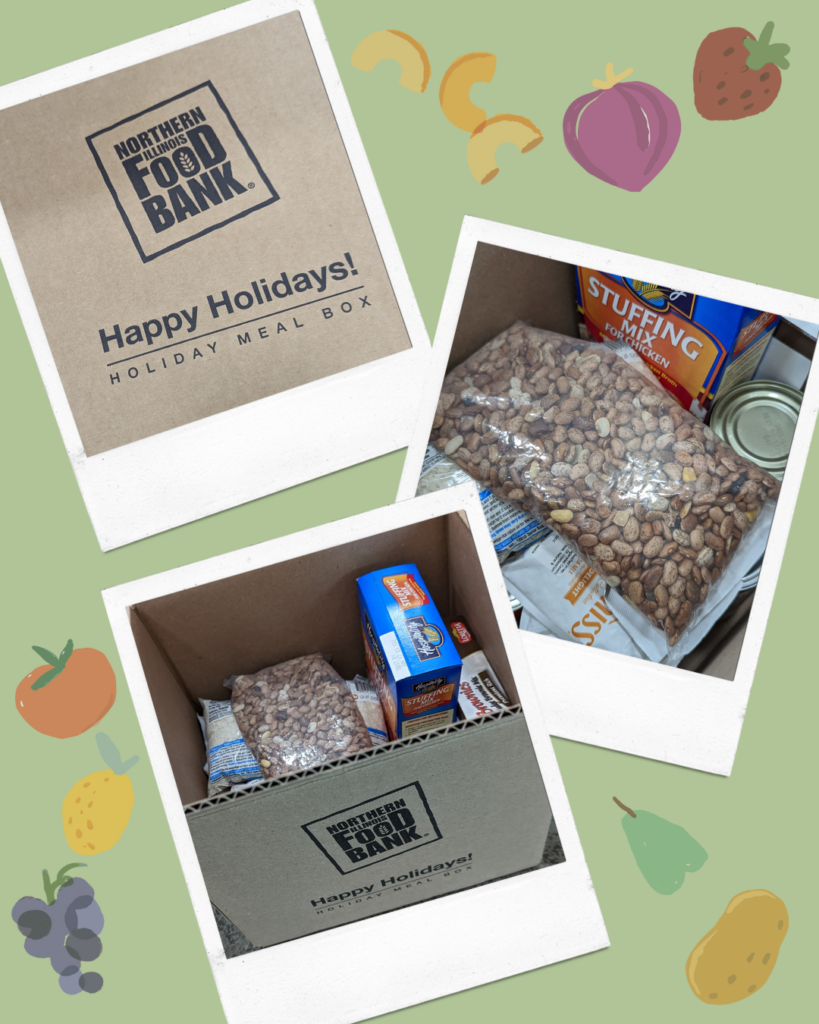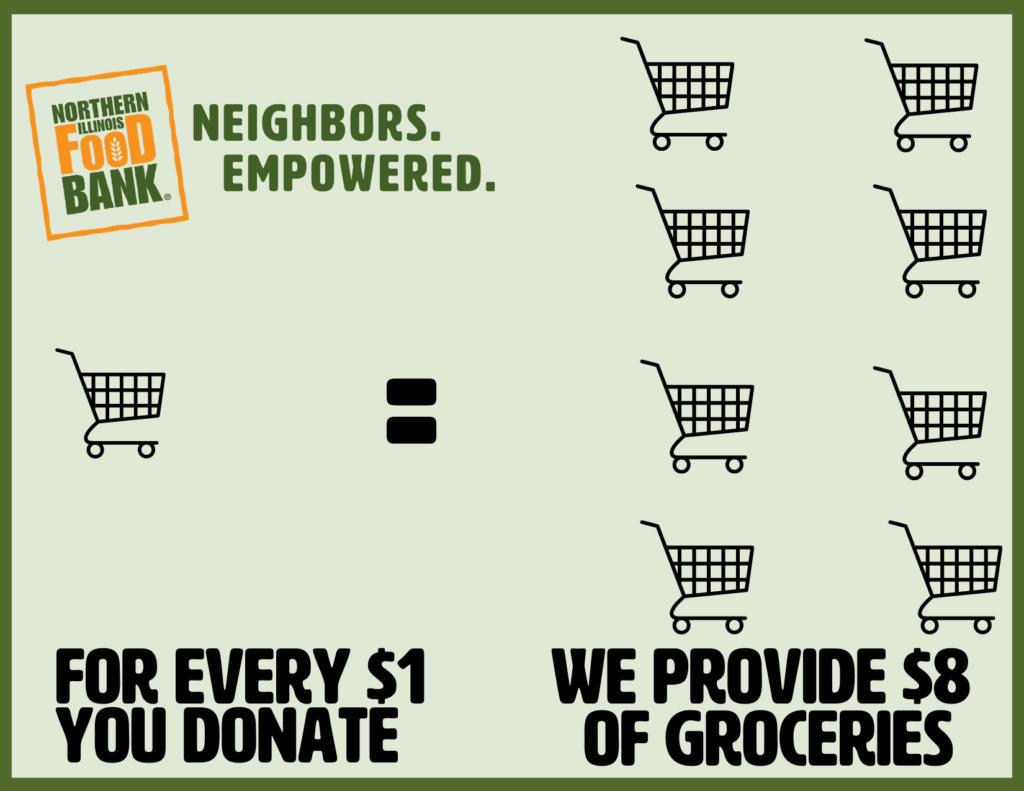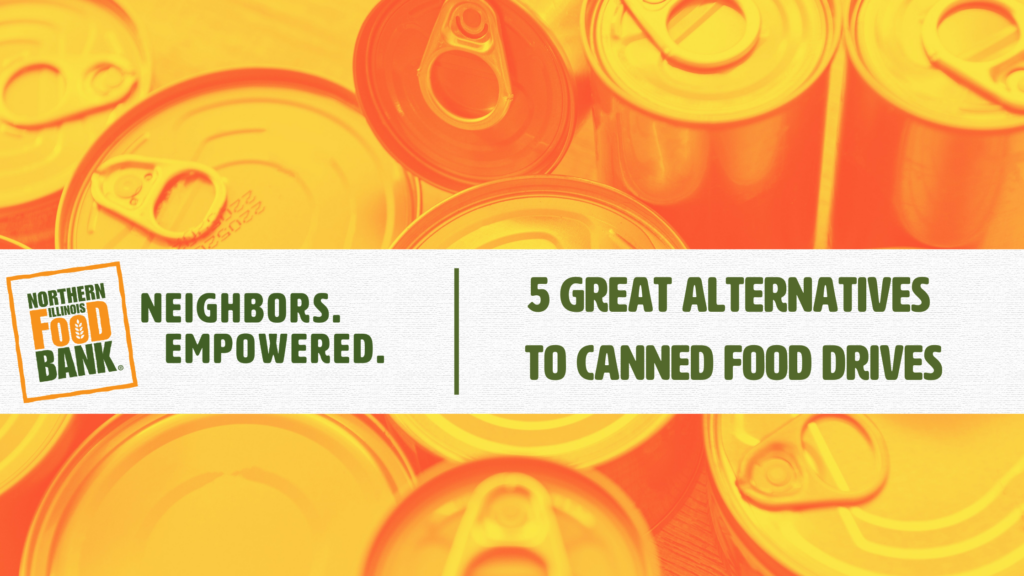The first time Tim Z. volunteered, he didn’t think he would like it. His daughter needed volunteer service hours for her high school, so they decided to try the Food Bank’s South Suburban Center in Joliet.
“This wasn’t where I wanted to be. It’s actually kind of funny because I was just like, `Oh, I got to go there and volunteer.’ But I fell in love here. I fell in love with all the volunteers that were coming and helping other people out.”
It’s been over three years and Tim, who is 51, is now a volunteer supervisor in the South Suburban Center.
“The amount of volunteers that come through this building – we’ve grown into a family. That’s what it’s turned out to be here,” he says.
He and his daughter have worked just about every job there is in the Food Bank’s distribution center, from relabeling cans of vegetables to packaging cereal. And he has learned a lot about food banking, food pantries and the people they serve, who come for a wide variety of reasons.
When he walked in the door for that first volunteer shift, “I really didn’t know too much about food pantries. I mean, I thought it was pretty much just the homeless on the street,” Tim says.
We caught up with Tim in late February when he was supervising My Pantry Express, the Food Bank’s online food pantry, which offers evening pickup hours directly for neighbors out of our South Suburban Center.
“I interact with everyone that comes through here and it’s as if they’re my own brother or sister,” he says.
He tells the story of meeting a mother and daughter one night the previous winter, which was during the height of the pandemic. They were in the drive-up food pickup line in an old truck that was on the verge of quitting. “I kept on telling her, ‘Keep the foot on the gas because that vehicle cannot die.’ And it died out front and it was cold,” he says. “And I told my sis, ‘Come on in here, sit down. I will get somebody. I’ll get your truck running again.’ And I pulled my vehicle over to jump her vehicle. And she just was sitting in here and you could see that she was cold.”
A year later, she is still a regular at My Pantry Express. “Like I said, she’s like a sister to me and she’s always laughing, smiling. Her daughter’s always laughing,” he says. “Her smile on her face just lightens us. So, she’s come a long ways and I mean, she touched my heart.”
Tim had been out of town for a few weeks working his regular job as a construction foreman. This neighbor and many others noticed his absence, and cared.
“I’ve gone through a lot on a personal side this past year with my own family. And she was asking, even when I wasn’t here, ‘How’s Tim doing? How’s Tim doing?’ Asking all the volunteers and that. So, I mean, a lot of them are asking how I’m doing.”
He circles back to the idea of laughter and smiling. It’s important to him, as it’s a way to offer hope and recognition.
“All of us back there are always smiling,” he says. “If you’re not making them smile, they’re going to feel afraid to come back. So, we’re trying to encourage them to come back every week. I remind them, ‘Put your order in when you go home tonight.’”
Tim’s smile and dedication has earned him recognition as one of our outstanding volunteers.
“They all call me El Presidento,” he says, a name that comes from the early days of setting up My Pantry Express in Joliet, when his leadership and organizational skills were put to good use.
“I don’t ask for anything back. I joke about the paycheck,” he says, “because it’s something funny and that, but even if I did get a paycheck, I’d be donating it right now. I mean, because I’m not here for no money. I’m not here for no recognition and no employee of the year. In my eyes, employee of the year is everyone that comes in here to volunteer.”
He also donates hand-made bag toss (aka cornhole) game sets to the volunteer program in Joliet. “I do it on the side,” he says. “I make them for other people and that, but it’s something to give back to the ones who volunteer for us. As a thank you for coming out.”
“The volunteers here are like a family,” he says. “We come here so we’re all together to serve.”
And that service – whether that be a donation of time, food or money – is important. “You’re making a big difference by your donation,” he says. “It is hitting every person that’s in need. And in my eyes, everybody at one time in their life will need assistance. Everybody will.”


